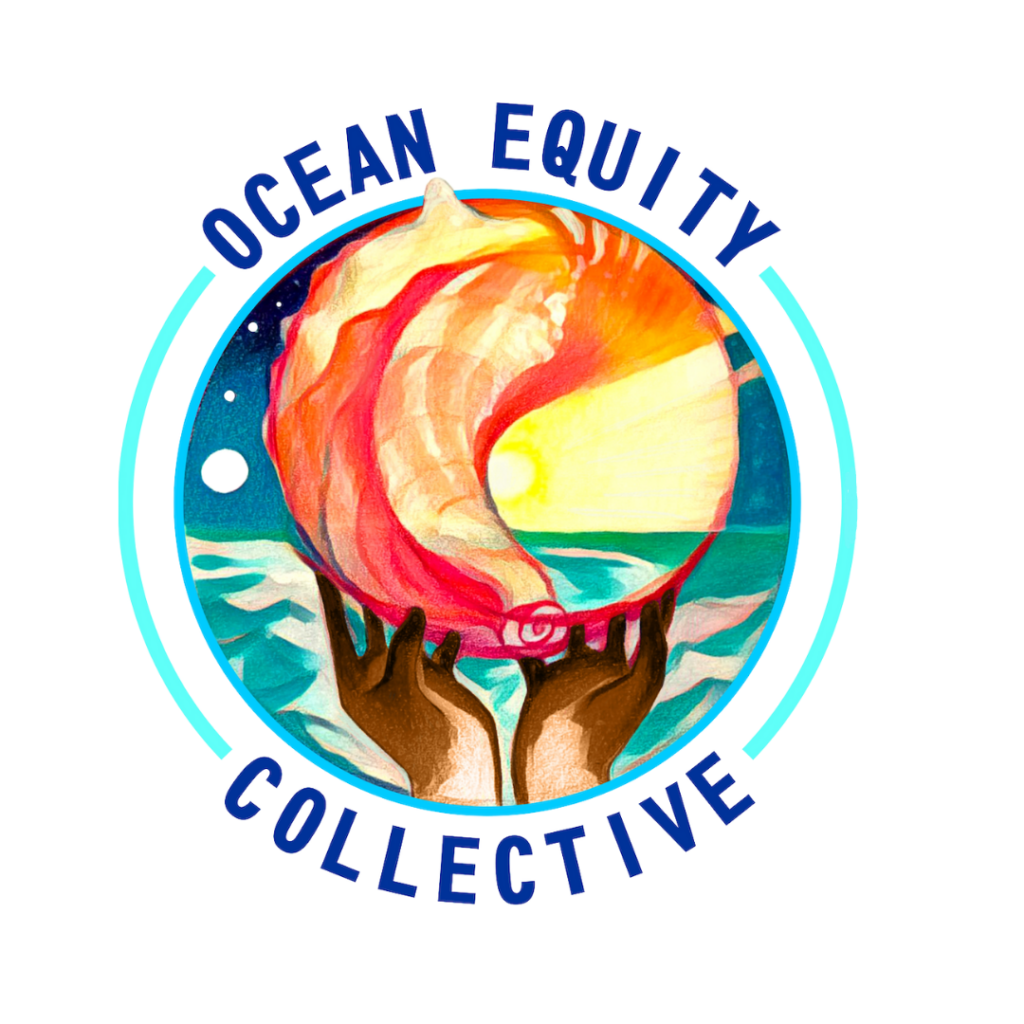
“Language is the basis of trust building and so important in interactions with new partners and communities.”
The Ocean Equity Collective is an affinity program of the Next 100 Coalition, composed of Black, Indigenous, and People of Color-led and serving organizations and individuals. Our mission is to foster the next generation of ocean stewardship while elevating and creating a community-centered sustainability movement where all people can access and cherish the ocean and its ecosystems. We envision a community-centered and led sustainability movement, where the ocean’s ecosystems are conserved, accessible, protected, and cherished by all people.
The Ocean Equity Collective works to ensure all communities can participate in the protection and enjoyment of the ocean’s ecosystems by addressing the current and historical inequities built in the ocean conservation movement. We do this by continuing in our cultural traditions, centering communities, and working to support a movement that includes those who have been historically excluded.
This guide has been written to aid in community support. Whether the guide is used by an individual, on behalf of an organization, government agency, or a corporation, we hope this guide is used to better communication and relationships with communities, and to decolonize the language we use. Language is the basis of trust building and so important in interactions with new partners, and communities. Especially when creating new partnerships for research, data collection, or projects, it is of the utmost importance that communities feel comfortable, safe, and heard in those partnerships. Communities can tell when interactions are transactional and/or paternalistic, and not only does this weaken the outcome of the partnership, but it creates distrust, lessening the opportunity that the community will work with that person or group again.
As many Black, Indigenous, and communities of color have been on the unsafe end of these transactional interactions, we sought to create a resource that will work to lessen these kinds of interactions and open the door for more fruitful conversations and partnerships across communities and sectors. This language guide was created by members of the Next 100 Coalition’s Ocean Equity Collective and we recognize that it is just a start to a more comprehensive language guide that will be built with community. Therefore, this first iteration of the guide will continue to grow with community input.
We look forward to engaging more BIPOC community members as we expand on this growing document and collectively build a resource that all communities can utilize and learn from.
Read the guide below!
Contribute to the guide!
Your feedback will be used to make this guide better and more robust in the coming months and years, allowing for true language clarity and the ability to build trust across conservation.
Please share anything that you would like to see in this guide; definitions, examples, phrases to avoid or a new section we may not have included in the current iteration.
We also want you to feel free to tell us what we may have gotten wrong; be it a definition, wording substitutions etc. Your input is important to us!

